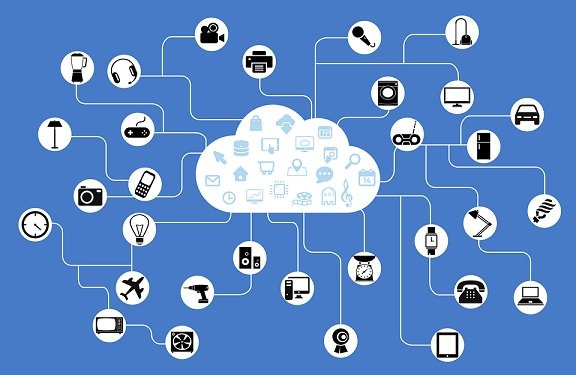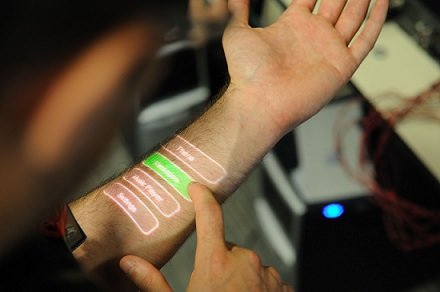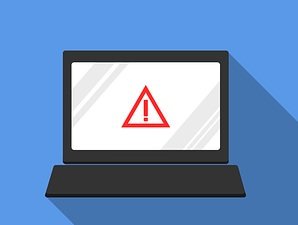Internet of Things, and Botnet of Things (The Internet Dark Army)
Introduction
The other time, I mentioned about the Internet of Things (IoT) in passing, but I feel we should treat it in fuller details here. Have you ever imagined all your electronic devices and gadgets being linked together to a central hub? That is a perfect description of what Internet of Things is all about. And as you know, the world is now becoming localized with the emergence of technology. In this survey, we will be looking at the concept of Internet of Things; IoT, and also the dark side of it, which is the Botnet of Things.

[Image Source: Pixabay. CC0 Licensed]
Concept of Internet of Things (IoT)
Before the advent of sophisticated technology; probably around the early 2000s, the only devices known to be connected to the internet were the personal computers. Then the smartphones came on the scene, and after that, some other devices emerged; which, in the real sense can also be called “smart”, which are somehow connected (directly or indirectly) to the internet.
A recent publication made an extrapolation of how many devices would be connected to the internet by the year 2020, and the result was rather overwhelming.
Over 50billion devices would be connected to the internet by the year 2020. Source.
Okay, this might not sound too big for you, but let’s do a little maths. Taking into consideration that the world’s population is about 7billion (on approximation), by inference, this is about 7.5 internet-connected devices per person on the average (assuming everyone owns an internet-connected device).
And remotely, these devices are seethed with sensors that pick data and information per usage and transfer them to the internet. Okay, now, imagine when all these devices are interconnected together to form a single whole. No wonder why it has been said that:
Technology is spying on us
Well, we will find out if this assertion is true or not. Like you may have known, the latest technology in the internet protocol (which is the internet protocol version 6; Ipv6) can create as many unique addresses as there are people to use them. So what does this tell you? When your internet-enabled devices access the internet, their unique addresses are recorded, and of course, they leave a digital footprint which call allow other devices to communicate with them. So you won't be wrong to infer that, in the future, your future will know more about you than you can ever imagine.
What this means is; our devices would be so smart that they can react to a user-specified need and also communicate with the user's needs. For example: Have you ever imagined having a smart home that would be linked to your car, your office, and of course to you?. Remember I mentioned about every of your devices having some sort of sensors that can communicate with each others. Then for you as an individual, to be able to effectively communicate with them, you would also have a form of biosensors implanted (as a chip) to your own body. What would be the work of these chips? Very simple; to interconnect you to the Internet of Things.

[Image of Skinput System. Source: Wikipedia. Authors: Scott Saponas, Dan Morris, Chris Harrison, Desney Tan. CC BY-SA 3.0 licensed]
Imagine when these biosensors begin to detect the anatomical changes in your body; like the blood sugar level, the stress level, and other things. Here's a possible scenario of what could happen: When you go to your smart freezer to pick up a bottle of chilled soda, the biosensor in your body would communicate with the sensor in the fridge to remind you that your blood sugar level is already too high, and taking soda could be a big risk. Now that is one of the things we should expect with the emergence of advanced IoT, and this would be the smartest way of living. By this era, your apps may have more health information about you than your physicians.
But like you know, some of these technologies come with their own perks. Now, let us talk about the issue of privacy. With all these devices working together, would our privacy level be compromised? This has been one of the major concerns about the IoT. In a world where your devices have access to a whole lot of database about you, would anything be kept secret anymore? And not to mention the sophistication that has greeted the software field; which could see to the development of some forms of algorithms that would be able to detect your next moves. Now, that sounds like a tale from a sci-fi movie, but this is what technology can offer.
Aside this, the threat to cyberspace has been on the increase. And some malwares have leveraged on the versatility of IoT to wreck havoc. We will look at one of them.
Botnet of Things
This is also called the "Internet of Things Botnet", which is the dark side of the Internet of Things. This is a kind of malware that; when it infects a host server; spreads through other devices that are connected to it.

[Image Source: Pixabay. CC0 licensed]
This botnets do not just spreed, but they take control of the devices and turn them into "zombie devices", which can be controlled remotely from a control hub. No wonder the botnet of things has also been codenamed "device zombie". And yes; because the IoT is turning the world into a global community, an attack from the botnet would turn these devices into armies of zombie through the access route of the IoT.
There was a report made sometime ago about the infestation of this malware, which pin-pointed two variants of botnets which are; Mirai (2016) and Satari (2017). The later attack by Mirai in 2017 caused a major compromise of over 1million internet-connected devices worldwide, which almost crippled the entire internet architecture of some notable sites like; New York times, Airbnb, Twitter, etc.

[Image Source: Pixabay. CC0 licensed]
These botnets do not only compromise the network architecture, but can clone passwords; now that's the scary part. But there are some security tips to get handy with to help checkmate their activities. These include:
- Do not click on just any link that pops up to you. Always apply caution with hyperlinks.
- Change the password to your devices regularly
- Once you notice some irregularities in your device, seek for the services of some technical experts in cybersecurity.
- And of course, get a good anti-malware
With these, you're relatively good.
Conclusion
As the world is getting localized, so also is the threat to cyberspace getting more sophisticated. But it is our duty to ensure that we don't get too carried away by the trend of technology to forget to put some checks into place. Remember, botnet is not a cool ware to mess around with.
Thanks for reading
References for further reading: Ref1, Ref2, Ref3, Ref4, Ref5
All images are CC licensed and are linked to their sources


gif by @foundation
I think one other dark side of IoT or lemme say technology in general is making humans lazy. i doubt if the coming generation will be able to handle some things. My thought though.
You're quite correct. Technology has caused humankind to live a sedentary lifestyle. But it has also assisted us in no small ways.
Thanks for dropping by
You are talking about the next generation.. What of our generation?.. We are quite lazy too.
IoT with data science and artificial intelligence in combination could make miracles in the future, what a time to be alive! :)
Exactly. It would really be magical. So cool to be alive in this era :D
Ironically even the "trusted" platforms are collecting information we don't know they have. Although they are not using it for anything bad (as far as i know) but you never can tell what the botnet would attack later.
Is there a permanent solution to the botnet?
There are some checks to put in place to limit their activities. But I wouldn't call them permanent solutions. Remember technology is still advancing
Spoiler: there are never any permanent solutions 😔
Lol. Maybe you can give us a permanent solution shaa. :)
So much revealed here. There is even something known as the dark net
Yeah! Darknet, Dark web, and Deep web. But they don't really have much to do with Botnet. These are not even accessible by the normal search engines we have.
Thanks for dropping by